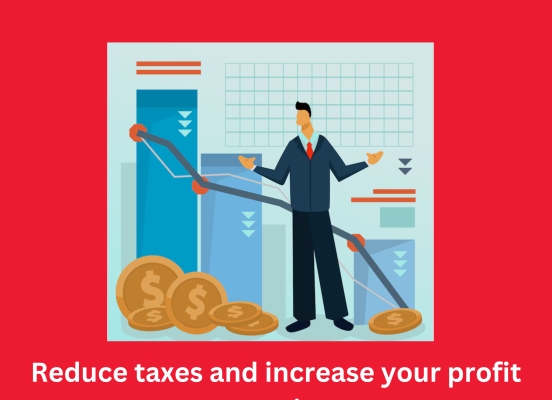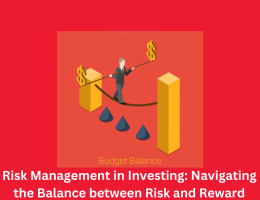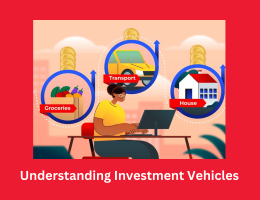
Reduce taxes and increase your profit margin.
- By admin --
- Wednesday, 10 Apr, 2024
There are expenses related to each investment. Expenses past your initial funding amount would possibly encompass commissions, expenses, administrative fees, and taxes. Out of all of the fees, taxes might be the maximum painful and burn up your returns the maximum. But there's excellent news, so do not worry. Investing tax-successfully can also lessen your average profits and optimize your financial savings, irrespective of your intention of generating coins flow or retirement savings.
Why Is Investing Tax-Efficient Important?
The two most sizable factors influencing funding consequences are asset allocation and investment choice. However, lowering your tax legal responsibility can also have a large, lengthy-term influence to your income.
This is because of factors:
The money you pay in taxes is forfeited.
The increase that the money may want to have produced if it had remained invested is misplaced.
Pre-tax returns are not as vital as after-tax returns. You will spend the ones after-tax coins each now and in retirement, in any case. Investing in a tax-green manner is critical in case you need to optimize your income and maintain more of your money.
Investment Account Types
Selecting the precise investments and accounts to store them in is crucial to tax-green making an investment. Taxable debts and tax-advantaged accounts are the 2 number one categories of investment bills. Every sort of account comes with blessings and disadvantages. Having both kinds of money owed is vital while growing an investing plan. Below, we have mentioned some of the salient functions of each.
Advantageous Tax Accounts
Generally speaking, tax-advantaged accounts are both tax-exempt or tax-deferred. Traditional IRAs and 401(ok) plans are examples of tax-deferred finances that provide an in advance tax advantage. Contributions to those packages may be deductible, which offers an immediate tax benefit. The tax is postponed till you are taking cash out of your retirement account.
Roth IRAs and Roth 401(okay)s are examples of tax-exempt bills that operate in a different way. Since these plans require after-tax contributions, you do now not get the equal initial tax advantage as with normal IRAs and 401(okay)s. But your retirement eligible withdrawals are tax loose, and your property develop tax loose as properly. These accounts are for this reason appeared as tax-exempt.
The boundaries on while and how you could withdraw cash from those accounts are a exchange-off for the tax benefits they provide. When you are taking withdrawals when you are not yet retired, you will often be difficulty to taxes and/or consequences.
Tax-Sensible Investing Techniques
Certain tax-advantaged debts, along with 401(k)s and IRAs, have annual contribution caps. You can fund your IRAs with a total of $6,500 in 2023, or $7,500 in case you are 50 years of age or older (due to a $1,000 capture-up contribution). The normal contribution cap rises to $7,000 in 2024. If you're 50 years of age or older, you could donate a total of $8,000 because the trap-up cap remains $1,000.
You can donate as much as $22,500 (or $30,000 with the seize-up contribution) to 401(okay)s in 2023. In 2023, the whole contribution from the organization and personnel can not be greater than $sixty six,000. After accounting for the seize-up contribution, this comes to $73,500.
Up to $23,000 or $30,500 may be contributed in 2024 with the catch-up contribution. In 2024, the total contribution from the business enterprise and personnel can not be extra than $sixty nine,000. After accounting for the trap-up contribution, this comes to $76,500.
Tax-Advantageous Investments
Taxes on gains can be due if an investment is sold, as most buyers are conscious. However, inside the occasion that your investment distributes its income as dividends or capital gains, you may additionally be accountable whether or not or no longer you sell it.
Certain belongings are inherently greater tax-green than others. For example, amongst inventory funds, alternate-traded budget (ETFs) and tax-controlled funds are normally extra tax-efficient because of the reality that they produce much less capital profits. However, because they buy and sell shares extra regularly, actively controlled finances may also result in higher capital profits distributions—which means greater taxes for you.





